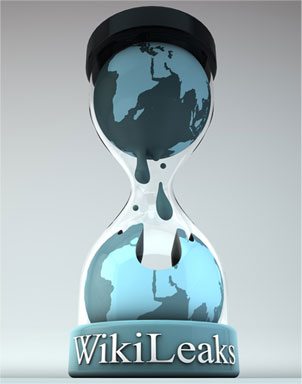
WikiLeaks is once again breaking into the contents of several, secret diplomatic wires from the United States Embassy in Jakarta to Washington. At first glance, it’s as if the report by that U.S. embassy exposed Indonesia’s scandals to the international forum.
It’s as if Wikileaks should be commended for uncovering information that could threaten the unity of the Republic of Indonesia. It’s not surprising that the Indonesia’s People’s Representative Council immediately asked the U.S. not to meddle in the affairs of the Indonesian state.
Truthfully, if we understand the mission of Wikileaks — that is, the promotion of openness — then anything uncovered by WikiLeaks is still within the boundaries of its mission. The WikiLeaks report enlightened us on the U.S. perspective toward the Susilo Bambang Yudhoyono (SBY) government, as well as the political developments in Indonesia.
The problem is that the report by the U.S. Embassy in Jakarta has come to be seen as unnatural because of the way our perspective differs from what is seen in that report. It’s as though whatever the U.S. embassy in Jakarta does appears as a violation of diplomatic ethics.
That U.S. Embassy report would be something we should make an issue of, if the report had not been directed toward the U.S. government. By sorting through which members of SBY’s cabinet are pro-America, WikiLeaks has revealed a secret that cannot be known by anyone in Indonesia. This view is clearly wrong!
Why? Whatever view or opinion the U.S. Embassy has about the structure of SBY’s cabinet, it is the right of that country to hold that opinion. Of course, there are issues of a sensitive nature, such as what caused Defense Minister and Lieutenant General Sjafrie Sjamsoeddin to be banned by Washington from entering the U.S., an issue we need to view in a rational and objective way.
The report allows us to obtain a clear picture of Washington’s policy toward that General of the Army Special Forces Command. But Washington’s verdict toward the defense minister does not have to become a reference. At the same time, the comments about potential candidates and the various persons with the potential to become president in the 2014 presidential election are nothing new, from the lens of Indonesian politics.
Anyone who follows political activities must agree that figures like Hatta Rajasa and Aburizal Bakrie really are planning to go in that direction. The U.S. embassy assessment would have been very different, if this event took place when Indonesia’s political system was still in the same situation as it was in the New Order era.
Furthermore, for those who understand the mission of foreign delegations, it is fitting for the U.S. delegation in Jakarta to create a report in accord with their mission and priorities for the headquarters in Washington. United States officials in Washington surely have limited information about developments in Indonesia. So it becomes the duty of the U.S. Embassy or even the ambassador in Jakarta to provide a layout of Indonesia, according to Washington’s point of view.
Even if the opinion in that report makes the impression that SBY’s cabinet has various ministers who are close to Washington, as well as some that are considered not to be close, that is natural and legitimate.
The layout does not have to be seen as pinpointing ministers who are supposed to be unofficial agents of the U.S. in Indonesia or those who are traitorous sons and daughters because they are ready to become agents of the U.S. or the CIA.
On the other hand, those who are opposed by Washington are considered national heroes and patriots. We should receive both as nothing more serious than input. However, we have to believe that each person who was chosen as a member of the cabinet still has a strong sense of nationalism and that they love Indonesia more than any other country.
However, the report by the U.S. Embassy represents a big problem if its contents do, for example, ask Washington to do away with the legitimate government in Indonesia, to execute ministers that oppose the U.S., or to help supply weapons and money for separatist movements in Indonesia.
One other thing that must be understood is that the diplomatic cable reports released by WikiLeaks were not limited to just one country. WikiLeaks included diplomatic reports of all the U.S. embassies in the world. The report about Indonesia was only one of thousands of WikiLeaks reports, in which similar accounts were also made regarding other countries.
Another issue that we should acknowledge is that our embassies in other countries certainly might do things that resemble that of the U.S. Embassy in Jakarta, but those reports have not received the attention of the WikiLeaks editor. Indonesia does not receive much attention from the young Australian’s website, because Indonesia’s diplomatic influence is not strongly felt by other countries.

Leave a Reply
You must be logged in to post a comment.